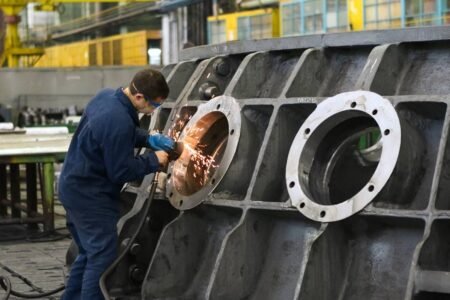In a broad consultation initiated by the European Commission, around 1,000 small and medium sized enterprises (SMEs) and business organisations have now identified the top 10 most burdensome EU laws. The purpose of this broad consultation was to check where EU regulation might be impeding jobs and growth and to identify areas or issues which would require further examination and action where necessary.
Advertisement
What will happen now after the top 10 most burdensome EU laws have been identified by SMEs?
The Commission will thoroughly address the concerns expressed by Small and medium-sized enterprises (SMEs) in the top 10 consultation via the new Regulatory Fitness and Performance Programme (REFIT (COM(2012)746 final)) launched in December 2012. It will announce follow up actions (e.g. legislative amendments or further evaluation) wherever appropriate by June 2013. These will complement the intensive work already underway to reduce difficulties and costs in the identified areas.
Has the Commission been active already to reduce the burden in the areas identified by the Top 10 consultation?
Yes. The Commission has already taken various actions to improve and simplify legislation which has been identified by business as burdensome in the context of the TOP 10 consultation. These and many more examples are detailed in the Communication adopted by the Commission today, too, on the progress achieved in introducing lighter regulatory regimes for businesses:
REACH (Registration, Evaluation, Authorisation and Restriction of Chemicals)
A review was adopted early 2013. It was supported by numerous thematic studies with an input from more than 1600 companies. The review concludes that REACH functions well and delivers on all objectives that at present can be assessed (COM(2013)122). However, it also concluded that the share of burden in achieving the result has been disproportionate for SMEs and this issue has to be addressed as in the next phase of registration of substances until 2018 will involve many more SMEs. In this context, the Commission concludes that changes to the enacting terms of REACH will not be proposed but it makes specific recommendations to reduce the impact of the Regulation on SMEs.
VAT – Value added tax legislation
The Commission has launched a strategy to simplify and modernise EU legislation on VAT. This sets out priority actions needed to create a simpler and more efficient VAT system in the EU, easier for businesses to deal with. Among the business-friendly initiatives under this new strategy are, for example, a standard VAT declaration form for cross-border businesses and an EU VAT information web-portal. A recent improvement in EU VAT legislation is that, since January 2013, VAT payments are considerably simpler for businesses thanks to new, simplified and modernised rules on VAT invoicing. New provisions have also entered into force at the start of 2013 which allow cash accounting for very small businesses. From 2015, new measures will make the taxation of telecommunications, broadcasting and electronic services more SME-friendly by allowing service suppliers to submit a single VAT return in the Member State in which they are identified (“One Stop Shop” system).
General Product Safety and market surveillance package
The Commission has also addressed SMEs’ concerns in the recently adopted ‘Product Safety and Market Surveillance Package’. More coherent rules will lower compliance costs for SMEs and will make it possible for more of them to become able to respect all product safety requirements. Thus, it will become easier for them to access other EU markets. The Commission will provide special guidance and information, in particular through the European Enterprise Network (EEN), to companies on the interpretation and application of the new rules. The EEN, supported by the network of national SME Envoys, is expected to collect feedback from SMEs and report on their specific needs and concerns to be taken into account for the implementation of the new rules. Last but not least, the Commission will provide financial support for joint enforcement actions, allowing market surveillance authorities and customs to pool resources and expertise and to apply SME-friendly methods.
Recognition of professional qualifications
In 2011 the Commission proposed a new Directive (COM(2011) 883 final) which is still under discussion in Parliament and Council. It would help SMEs because it would facilitate mobility of workers by introducing a European professional card. The card would make it easier and quicker for the authorities of Member States which regulate those activities to complete the formal processes for the recognition of the qualifications of professionals obtained in other Member States. The success and timing of individual recruitments can have a proportionately greater impact for smaller operators.
Shipments of waste – Waste framework legislation – List of waste and hazardous waste
The Commission will in 2013 start a comprehensive review of waste policy and legislation covering key targets in EU waste legislation, an ex-post evaluation (“fitness check”) of five Directives dealing with separate waste streams and an assessment of how the problem of plastic waste can better tackled.
Labour market-related legislation
In order to improve health and safety of workers at work, the Commission has launched a comprehensive policy evaluation in 2012 to assess the relevance, effectiveness and coherence of the main Directive on safety and health of workers and more than 20 daughter Directives. The results are expected in 2015.
In the light of the lack of a common view resulting from the negotiations held by the social partners at EU level reviewing the Working Time Directive in 2012, the Commission is now considering its position.
Data protection
The Commission proposed that companies with less than 250 workers would not need a Data Protection Officer or Data Protection Impact Assessments, unless their main business is data processing.
Recording equipment in road transport (for driving and rest periods)
In 2011, the Commission proposed a new Directive (COM(2011) 451 final) which is still under discussion in Parliament and Council. SMEs would benefit because vehicles driven within a radius of less than 100 km would not need to have a tachograph installed.
Procedures for the award of public contracts (public works, supply and service contracts)
The Commission has proposed a new Public Procurement Directive in 2011 which is still under discussion in the EU legislative procedure in Parliament and Council. It would facilitate the participation of SMEs in contracts because significant simplification introduced into the procedures, including self-declarations and encouraging smaller lots.
What is the SME scoreboard?
Today, the Commission has issued a new annual scoreboard covering EU regulatory initiatives expected to have a significant impact on SMEs. It will allow all interested parties to track the progress of the legislative cycle from Commission proposal through to implementation in Member States. It will identify the main issues relevant for SMEs and how different approaches to implementation at Member State level affect the overall result.
This will enhance understanding of the content, purposes and impact of EU legislation, providing a basis on which stakeholders can comment, informing all concerned about how EU legislation works and how effective it is in producing results.
Why does the Commission consider it essential to respond to the needs of SMEs within its smart regulation agenda?
Small and medium-sized enterprises form the backbone of the European economy, contributing significantly to innovation, growth and job creation. SMEs can thrive best in a business environment in which regulation respects the specific needs of SME while pursuing its policy objectives. Investments into new technologies and innovation require a simple, stable and predictable regulatory framework.
For these reasons, the Commission has put the interests of SMEs into the core of its smart regulation agenda: The cost of legislation to SMEs is systematically assessed through the
Commission’s impact assessment system before legislative proposals are adopted. In addition, the Commission is committed to exempt micro enterprises from legislation and to introduce lighter regimes for SMEs wherever possible.
How does the Commission consider the needs of SMEs in its smart regulation agenda?
Cutting red tape and listening to the voice of SMEs have been firmly embedded in the Commission’s work for several years. The Commission follows the “Think Small First” principle which requires that impacts on SMEs be taken into account when designing legislation and that the existing regulatory environment be simplified so that SMEs find it easier and cheaper to comply with regulatory requirements.
For this purpose, the Commission has developed a number of policy instruments and initiatives:
The Commission’s impact assessment system systematically assesses all significant costs and benefits of every proposal made by the Commission.
Micro-enterprises are exempted from regulation and lighter regimes are introduced for SMEs wherever this is possible.
The new Regulatory Fitness and Performance Programme (REFIT) screens the entire relevant legislative acquis to identify burdens, gaps and inconsistencies with a view to correct them wherever appropriate. The REFIT programme takes into account the concerns of SMEs and also follows-up on the results of the public consultation on the TOP 10 most burdensome EU legislative acts for SMEs.
The Commission introduced a scoreboard to cover regulatory initiatives with a significant SME impact. The scoreboard will show how exemptions and lighter regimes proposed by the Commission are followed-up by the European Parliament and the Council and how they are implemented by Member States for the benefit of SMEs.
The Commission has established a close coordination system with the SME community through the national SME envoys, the European Enterprise Network (EEN), regular conferences and meetings with stakeholders and companies, as well as through consultations such as the consultation on the TOP 10 most burdensome EU legislative acts for SMEs.
The needs of SMEs and good administration in the implementation of EU legislation in the Member States will be a main focus for the advice provided to the Commission by the High Level Group on Administrative Burden (“Stoiber Group”).
What is the Commission’s Regulatory Fitness and Performance Programme (REFIT)?
In its Communication on EU Regulatory Fitness of 12 December 2012 (COM(2012)746 final), the Commission launched a new Regulatory Fitness and Performance Programme (REFIT) to screen the entire relevant legislative acquis and identify burdens, gaps and inconsistencies in order to correct them.
Wherever this is appropriate, the Commission will suggest legal amendments, in cases where further assessment is necessary, evaluations will be carried out.
In the context of the REFIT programme, suggestions from SMEs will constitute a continuous input helping the Commission to maintain regulation ‘fit for purpose’. The REFIT programme will also provide the follow-up to the concerns raised by businesses in context of the Top10 consultation.
The screening results of the REFIT programme will be published this summer.
How does the Commission exempt micro-enterprises from EU regulation?
Avoiding unnecessary regulatory burden is part of all Impact Assessments for new legislation. Within this process, the Commission starts from the premise that micro-enterprises should be exempted from the coverage of the initiative, unless it can be demonstrated that they need to be covered to meet the objective of the regulatory proposal, which may be to protect the environment, consumers, workers or ensuring fair competition.
Examples of exemptions that have been adopted by the Commission and are now in the process of being implemented by Member States:
Only shops selling electrical and electronic devices do larger than 400m2 need to reserve extra space to meet take-back obligations under EU electric and electronic waste legislation. Smaller shops are exempted.
Manufacturers responsible for less than 500 registrations of new passenger cars per year are excluded from the obligation of having a CO2 target.
Examples of exemptions that have been proposed by the Commission and are now in the EU legislative procedure:
Commercial vehicles driven within a radius of less than 100 km proposed to exempt from tachograph requirements for short journeys.
What are examples where lighter regimes for SMEs have been introduced?
When exemptions are not possible, efforts are made to tailor regulatory proposals to SMEs, for example; through the introduction of a lighter set of requirements for smaller businesses, reduced fees, etc.
Examples of lighter regimes for SMEs recently adopted include:
SMEs are encouraged, but not obliged, to carry out an energy audit. Member States may set up support schemes for SMEs, including if they have concluded voluntary agreements, to cover costs both of an energy audit and of the implementation of the highly cost-effective audit recommendations.
Micro-enterprises can now choose simpler ways of showing that any one-off construction products they put on the market meet applicable product standards.
Examples of lighter regimes for SMEs proposed by the Commission include:
Proposals to make it easier for SMEs to participate in public procurement. Only the winning bidder would be asked to provide the original documents and certificates. Breaking procurements down into smaller lots will be encouraged.
In addition, some EU legislation adopted already some years ago leaves it up to each Member State to decide whether it wants to introduce lighter regimes for SMEs (for example, in the areas of food hygiene, waste and annual accounts). Member States are invited to use these existing opportunities to lighten the burden on SMEs.
How does the Commission consult with SMEs?
The Commission is engaged in a close and continuous dialogue with the various representative organisations of SMEs and crafts in Europe.
With the SME Envoys, the Commission has created a network of high level representatives by Member States to serve as single points of contact on SME issues. To involve stakeholders directly, representative SME business organisations at European level participate as observers in the meetings of the network.
Moreover, the Commission is using the Enterprise Europe Network (EEN) to consult SMEs, including micro enterprises, directly on forthcoming legislation (‘SME Panel’ consultation) and to collect their feed-back on the existing EU legislation (‘SME feed-back’ database).
As part of its commitments to improve EU regulatory fitness the Commission is updating its consultation standards and envisages the publication of a rolling calendar of planned consultations on the ‘Your Voice in Europe’ website.
Further information:
COM(2013)122: Communication “Smart Regulation Responding to the needs of small and medium-sized enterprises”
SWD(2013)60: Staff working document “Monitoring and Consultation on Smart Regulation for SMEs”
Source: European Commission







